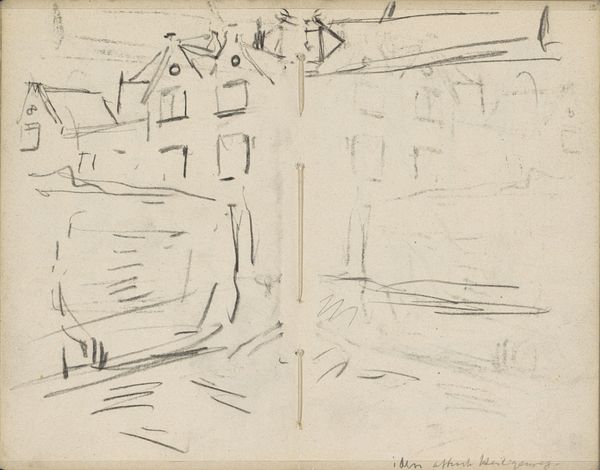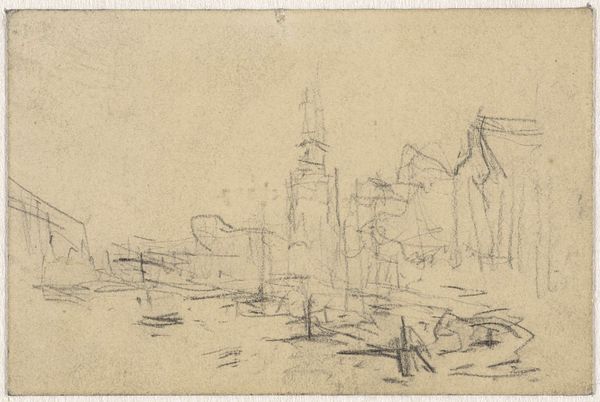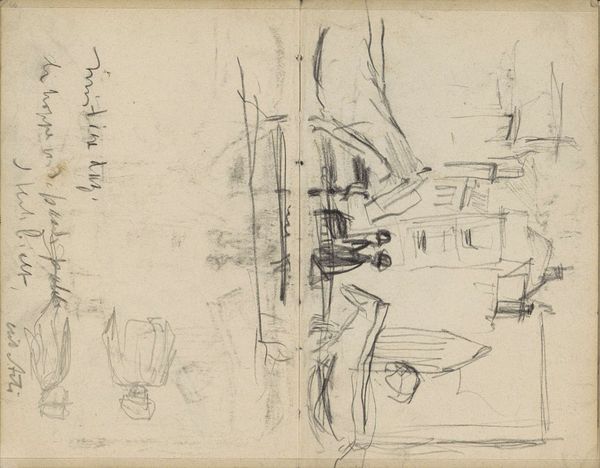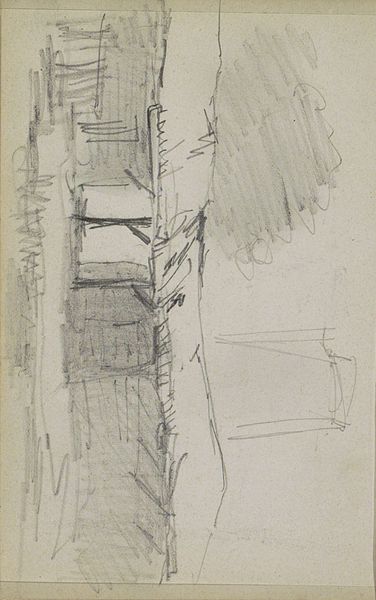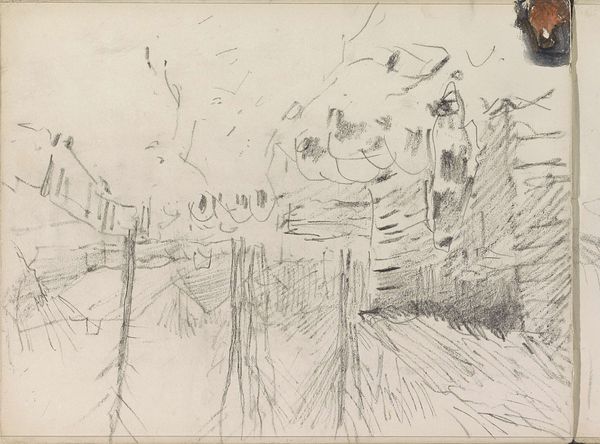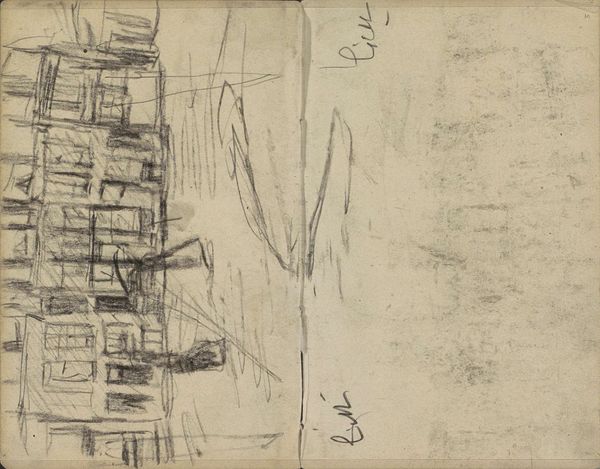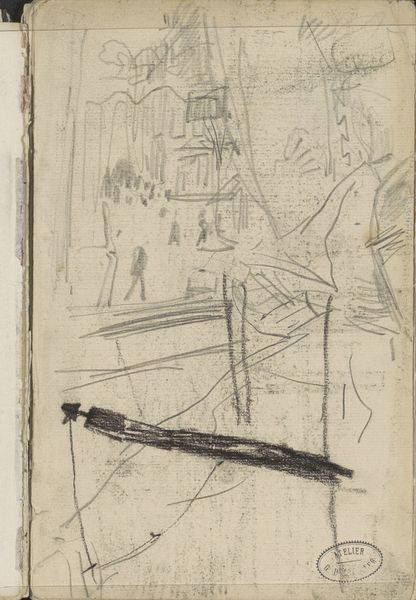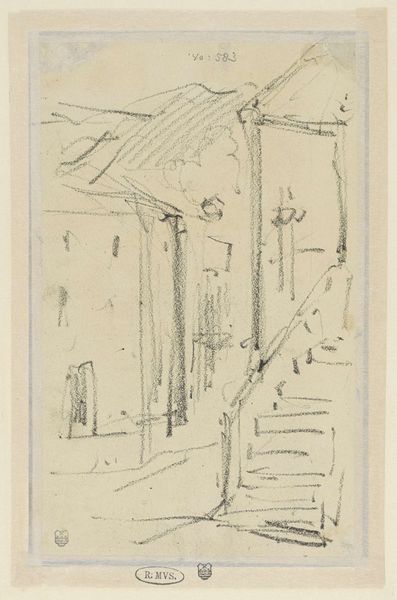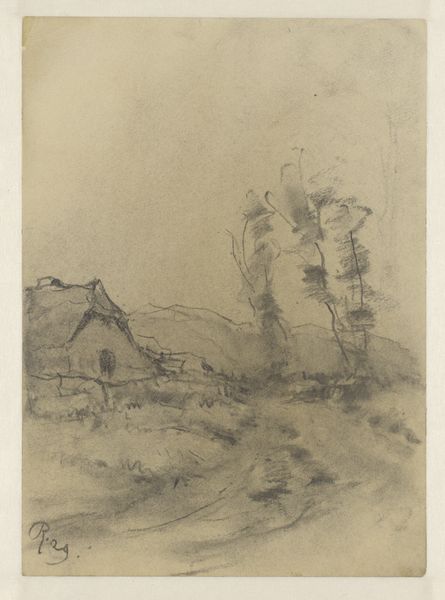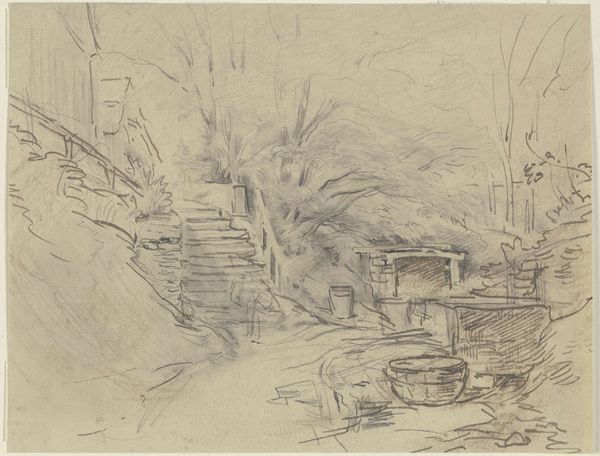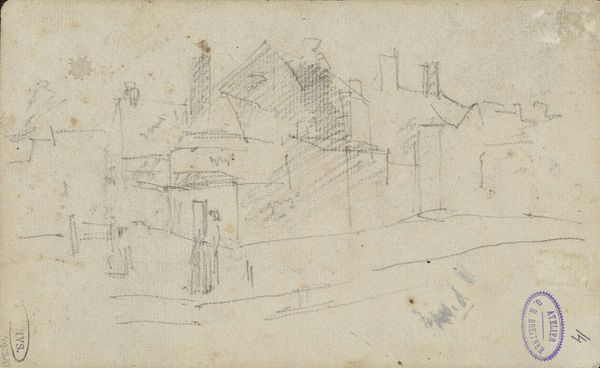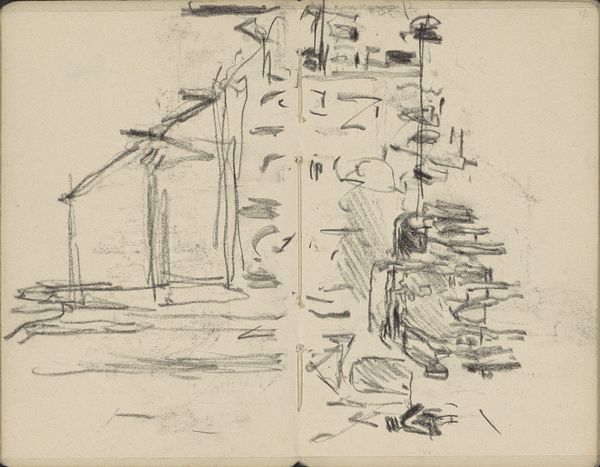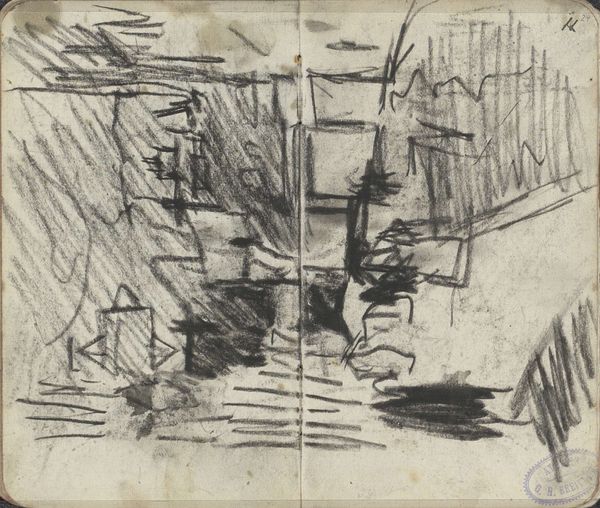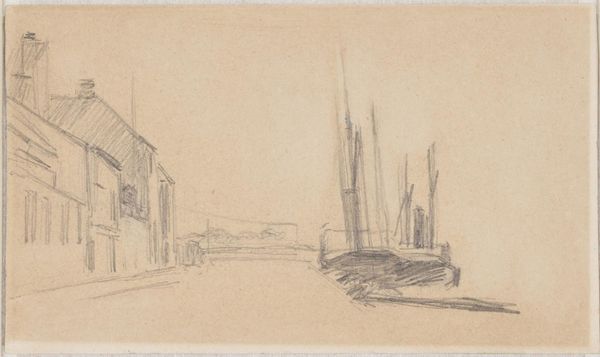
drawing, pencil
#
drawing
#
light pencil work
#
quirky sketch
#
incomplete sketchy
#
personal sketchbook
#
sketchwork
#
ink drawing experimentation
#
pen-ink sketch
#
pencil
#
sketchbook drawing
#
cityscape
#
storyboard and sketchbook work
#
sketchbook art
#
realism
Dimensions: height 215 mm, width 240 mm
Copyright: Rijks Museum: Open Domain
Curator: Here we have Reinier Craeyvanger's "Schets van een stadsgezicht", a cityscape sketch rendered in pencil, likely sometime between 1822 and 1880, presently held in the Rijksmuseum. What catches your eye first about it? Editor: Hmm, ghostliness, I think. It's as if the city itself is a memory, barely held in place by the lightest of lines. Curator: That ethereal quality makes me think about how memory operates on a cultural scale too. Look at the architectural details, even in their sketched form. They speak to an understanding of solidity, of history impressed upon the very stones. Do you recognize any architectural styles or symbols? Editor: Vaguely Romanesque arches perhaps, and other features are definitely there...or not there. Parts feel rubbed away as though the artist returned repeatedly to the same point, which also brings me to a broader sense of existentialism. What are we holding on to from the past? It seems fragile and ultimately futile to even try, judging from this drawing... Curator: A fruitful struggle, perhaps, the attempt to grasp something fading. The medium here—pencil on paper—contributes to that transience, don’t you think? Less permanent than, say, oil on canvas or carved stone. It's almost as if Craeyvanger wanted to emphasize the fleeting nature of urban existence itself. Editor: I love that tension. It invites me to reflect on the urban landscape: these drawings capture our interaction with place. What can be captured by those lines, what can't. Even the act of looking feels somehow complicit. We attempt to define reality for ourselves. That tension works at multiple levels for me. Curator: Indeed. This piece also reminds us that cities are always palimpsests, layered with different histories, different eras built upon one another. That perhaps these partial depictions are more honest than photographic realism could ever be? Editor: Well said. It reminds me that perception is never really complete. And art at its best is really an invitation into that recognition... Curator: Thank you! An apt conclusion, inviting us all to consider that what’s left out of an image—or a history—can be as important as what’s included. Editor: Absolutely! Now that ghost of a city has taken on new dimensions. Always a fascinating thing.
Comments
No comments
Be the first to comment and join the conversation on the ultimate creative platform.
